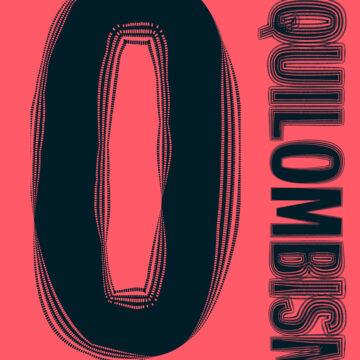Zawawa began on April 21, 2011 when acoustic scientist Kozo Hiramatsu, anthropologist Rupert Cox and artist Angus Carlyle met in Okinawa. A previous collaboration – Air Pressure – had explored the environmental stresses on a family of organic farmers living in the midst of Narita airport.
Tag: reader
Damir Avdagić: Prijenosi/Overføringer/Transmissions
Prijenosi/Overføringer/Transmissions is Damir Avdagić´s first artist monograph. Avdagić´s practice examines the socio-political implications of the conflict in the former Yugoslavia (1991-95) through text, performance and video.
Mark Tobey and Music
The importance that making music (as well as listening to it and thinking about it) had for Mark Tobey is well known. Reflections have been made on his being a painter and his sitting at the piano, the habit and pleasure of a lifetime.
Musafiri: Of Travellers and Guests – Reader (en)
The Musafiri: Travellers and Guests reader follows the entwined paths and encounters of those that embark on journeys, traversing the worlds that open up when the confines of familiar surroundings are left. They are musafiri, a word that denotes the traveller as well as the guest in a plethora of languages such as Arabic, Romanian, Turkish, Farsi, Urdu, Hindi, Swahili, Kazakh, and Uygur
Musafiri: Von Reisenden und Gästen – Reader (de)
Der Reader Musafiri: Von Reisenden und Gästen folgt den verschlungenen Pfaden und Begegnungen von Menschen, die sich auf den Weg machen und Welten durchqueren, die sich eröffnen, wenn man die Begrenzungen der gewohnten Umgebung verlässt. Sie sind musafiri, ein Wort, das von Arabisch über Rumänisch, Türkisch, Farsi, Urdu, Hindi, bis zu Swahili, Kasachisch und Uigurisch den Reisenden bezeichnet, aber auch Gast bedeuten kann.
Destination: Tashkent
Between 1968 and 1988, the Tashkent Festival of Asian, African, and — from 1976 onwards — Latin American Cinema was held in Tashkent, Uzbekistan.
Forgive Us Our Trespasses / Vergib uns unsere Schuld – Reader (EN)
The Forgive Us Our Trespasses / Vergib uns unsere Schuld Reader explores radical and emancipatory significations and fabulations of trespassing, turning towards practices that transgress and reshape the boundaries of, among other dimensions, currency, governance, religion, spirituality, language, and artificial intelligence.
Vergib uns unsere Schuld / Forgive Us Our Trespasses – Reader (DE)
The Forgive Us Our Trespasses / Vergib uns unsere Schuld Reader explores radical and emancipatory significations and fabulations of trespassing, turning towards practices that transgress and reshape the boundaries of, among other dimensions, currency, governance, religion, spirituality, language, and artificial intelligence.
Ballet of the masses. On Football and Cartharsis / BOM Magazine
The BOM Magazine, the publication for the Ballet of the Masses project at Haus der Kulturen der Welt (HKW), focuses on rare perspectives on football as a field of both tension and relaxation.
Echoes of the Brother Countries Reader
The Echoes of the Brother Countries Reader embarks on a rigorous reappraisal of the historical exchanges between the German Democratic Republic (GDR) and its so-called Bruderländer (brother countries). Published on the occasion of the eponymous research and exhibition project at Haus der Kulturen der Welt (HKW), this reader considers the echo as a fulcrum to examine the resonant aesthetic, social, and political implications of an era from the perspectives of those who were deeply affected by the GDR’s state and labour policies, yet gravely overlooked in its histories.
Echos der Bruderländer Reader
Der Reader zum Projekt Echos der Bruderländer versucht eine Aufarbeitung des historischen Austauschs zwischen der Deutschen Demokratischen Republik (DDR) und ihren sogenannten ‚Bruderländern‘. Die Publikation, die anlässlich des gleichnamigen Forschungs- und Ausstellungsprojekts im Haus der Kulturen der Welt (HKW) erscheint, versteht den Begriff des Echos als Dreh- und Angelpunkt, um die ästhetischen, sozialen und politischen Implikationen einer Epoche aus der Perspektive derjenigen zu untersuchen, die von der Staats- und Arbeitspolitik der DDR zutiefst betroffen waren, aber in der Geschichte der DDR kaum wahrgenommen werden.
As though we hid the sun in a sea of stories / Als hätten wir die Sonne verscharrt im Meer der Geschichten
Accompanying the exhibition As Though We Hid the Sun in a Sea of Stories, this reader weaves together essays, conversations, and poetry that trace the multiplicity of worldviews, histories, and archives that have existed within an area of Central and Eastern Europe, Central and North Asia, and further beyond.
O Quilombismo Album
Beyond thinking with quilombismo as a metaphor, O Quilombismo: Of Resisting and Insisting. Of Flight as Fight. Of Other Democratic Egalitarian Political Philosophies. deliberated on the intellectual and political implications of a philosophy and ideology based on the quilombos, mapping the spaces that they have made and continue to make possible today. Featuring over 100 full colour images and installation views, the O Quilombismo Album is a visual record of these acts of opening again, a celebration of conviviality.
O Quilombismo Handbook
The O Quilombismo Handbook is an indispensable companion to the eponymous exhibition. It includes background information on and numerous images of all exhibited works, texts providing further insight into the practice of the participating artists, as well as floor plans and sketches of the exhibition spaces. Two introductory essays provide context for the philosophy of quilombismo and the conceptual framework of the exhibition.
O Quilombismo Handbuch
Das O Quilombismo Handbuch ist die unentbehrliche Begleitpublikation zur gleichnamigen Ausstellung. Darin finden sich Werkinformationen und Abbildungen aller gezeigten Arbeiten, vertiefende Informationen zu den beitragenden Künstler*innen sowie Lagepläne und Skizzen der Ausstellungsräume. Zwei einleitende Essays führen in die Philosophie des Quilombismo und das Konzept der Ausstellung ein.
O Quilombismo Reader (DE)
Der Reader zum Projekt O Quilombismo: Von Widerstand und Beharren. Von Flucht als Angriff. Von alternativen demokratisch-egalitären politischen Philosophien, wendet sich an Leser*innen mit Interesse an den konzeptionellen Hintergründen und den kuratorischen Linien der Ausstellung: Auflehnung, Befreiung, Spiritualität, Ekstase, neue kulturelle Formen und ästhetische Paradigmen, Interpretationen von Kollektivität und Quilombo als Queering.














